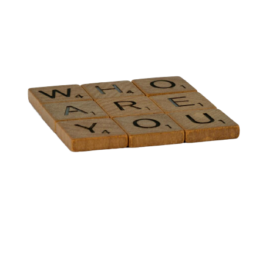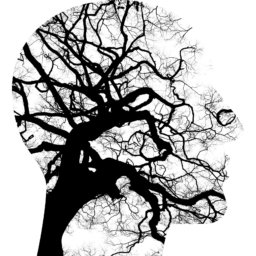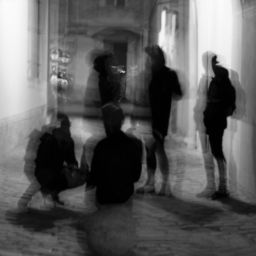Who will I speak to today? What secrets will entrench my mind?
Perhaps it will be that stranger hiding in the corner, the one who can’t keep his eyes off his phone. Or maybe it will be that petite frame just behind me. I feel the pressure every time she shifts her feet, the light touch of pen to paper as she creates a world upon that page. Perhaps she’ll later inform me of all the heartache burning inside her.
Walk into any university campus today and the foreboding will greet you at every turn. It will be in the books that you see on the shelves, extortionate prices that only students could need. The piles of papers that clutter nearby cafes as students cram for exams that will make up the rest of their lives. It’s in the small packs that make up the streets, the relationships that go ary. It will be in the local pub just down the road where the young try to let go of their minds.
I started volunteering in a charity in 2012: a charity which listens to university students who are struggling with life. A charity which aims to reduce young lives lost. A charity which gives hope to those who have no one else. And the most powerful lesson I have received is the art of compassion.
kindness, compasssion, care,

What strikes me about the word compassion is its origin in Latin: ‘to suffer with’ (1). In order to be truly compassionate one needs to be able to put all of one’s prejudices to the side and truly feel with the other person. For me, to offer compassion to my callers means to connect with them. To not just be a hand to hold but to transcend myself into their lives. I encompass myself around the words they speak, being attentive to the slight changes in tone that can indicate fear, frustration and hurt. I ask myself how it must feel to look at the world through their eyes. To walk into a lecture theatre having made yourself sick repeatedly the night before, the burning sensation still clawing down your throat. To be entrenched within an anxiety so deep that the day ahead no longer becomes an opportunity for growth but a series of obstacles. To feel so worthless in your own body that the answer appears within a carving of your own skin. How does it feel to be each and every one of these people? For me, compassion means to enter into these lives.
We do not offer answers. We are not professionals. And because we cannot know the answers, compassion becomes an integral part of our role. We find that often it is not advice that people seek but acceptance. What they want is for someone to appreciate their suffering and sit with them as they battle through their emotions, peeling apart every layer until what is left is humanity in its most raw and purest form. It is in the darkness of the night, caged within four walls that such emotions come to light. The mind can walk down some dismal corridors when left within its own container and while others lie asleep beneath the covers, finding escape within their dreams, we offer a place of comfort for those whose eyelids offer no such protection. When people feel they can no longer turn to family or friends, doctors or counselors, we offer a thread of connection. It is this connection to another living, human being that is so vital. We are there for someone when they are at their most vulnerable; a presence that contains no judgement or authority but speaks just once sentence: I am here for you. We give them the space to open up their innermost aches and pains in a society which seeks to put a lid over such authenticity. This is compassion and every night we are there, the phone by our sides, offering more than just words or sympathies but a human connection.
As I walk through the university I look at all the students rushing past and think of the hurt many have gone through. We are all so young, our feet barely brushing the steps that will lead on towards lives yet to be fulfilled. Some of these bright young minds have gone through so much pain already. Our graduation gowns have yet to touch our shoulders yet our lives are already filled with tragedies. As I walk through the university I think of the young girl I had just spoken to the night before, feeling her frustration as the walls of society – of expectations, of past failures, of future desires – closed in around her. I watch a group of male students scuffle past me, wondering if it was one of them who had been crying down the phone to me just a few hours before, speaking of death as a release from a society to which he felt a slave to.
I wonder where we are headed.
I can’t quite make out the words. If smells could travel through wires the alcohol would have overwhelmed the room by now. I can almost picture her slurring down the phone, one hand perhaps gripping a silver clutch while the other is clenched tight around an iPhone that will soon be out of battery.
I can hear jeers in the background and loud music even further off. It’s a Saturday night. But I can tell that something’s not right.
“Hello, how are you feeling?”
I keep my voice calm. One of the reasons I’ve stayed with the charity for so long is because of my voice; soothing, listening, non-judgemental are the words that are often used.
More cries. A shout in the background that doesn’t quite sound right.
“Hello?”
I try again.
“Please help me.”
“We’re here to help. What’s going on?”
“I think I drank too much. I don’t know where I am. And then these guys-”
At this point the weeping overwhelms everything else. It smothers the party music and the drunken laughter. It follows me right down the phone line and into my heart.
“Take your time. It’s okay.”
I maintain my blank face as my colleague listens to the call next to me. I can see her eyebrows steep downwards with every word. She is much more open with her emotions.
“I’m sorry. I was lost. These guys- these guys- god I don’t know what to do. Please help me.”
“We’ll help you. Stay on the line. It sounds like things are really difficult right now but we’ll get help. Is there a street sign close by?”
As my colleague contacts the police on another line I use the skills we have been taught to offer comfort and allow her lead the conversation. Most of it is made up of silence and occasional apologies which I turn aside. Then, I inform her that the police are on their way the atmosphere changes again.
“It was my fault.”
“No-”
“It was my fault. I deserved it. God what an idiot.”
She interrupts me, her thoughts flowing quicker than her speech as she vomits her self-hatred and blame down the phone. We’ve been taught not to interrupt callers, to let them get their thoughts out, to let them rant and rage and scream at the injustice around them. We’ve been taught to listen.
“I deserved it. I’m a failure, I’m going to fail my exams anyway. Who would want me? It’s all over. No one cares. Fuck life. Fuck the world. It’s all over.”
The call ends. The police never find her. And then I break down in tears.
As I sit and reflect upon the calls I have taken and the emotions I have shared, there is one thing that I have learnt through my compassion: people are strong. We go through difficulty and trauma, personal battles and crisis. But we also grow. We heal. The calls that I have taken, often brimming with emotions that have been held back by so many rules and regulations, often end in two words: thank you. Thank you for being there. Thank you for listening. Thank you for giving me hope. Despite all the hurt that pours out of these phone calls, the pleas unheard and the tears hidden away, people are ultimately able to vessel their experiences towards self-reflection and self-growth. They hang up the phone with an attitude far different from when it was picked up – I am grateful to be alive.
I would like to leave you with this quote which was sent to us by someone who had used our service, and through it had managed to find hope and comfort – through compassion:
‘Your voice of enquiring care made me realise I can cope. Thank you for my life.’














